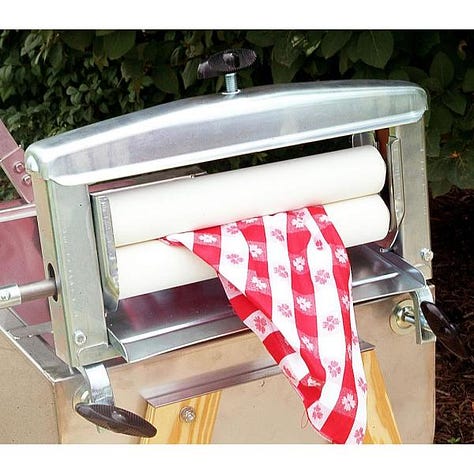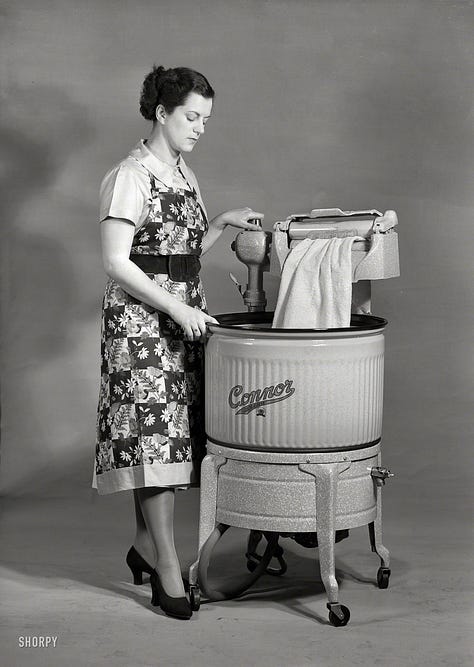
Friday Nov. 29th, 8AM
Please someone come light my fire!
No, I do not mean that—the way Jim Morrison and The Doors meant it. (No time in a monastery for Mr. Mojo rising!). It’s a real fire, in a real, pioneer-type wood stove—my only source of heat in the one-room cabin I’ve inhabited since September. I have enough seniority now that I could’ve been in a room with a radiator and heated floors, but instead I chose this cabin with the damn stove.
Why? It seemed like a quaint, romantic idea at the time, and at that time it was still sunny, bright, and warm outside. Now, when it’s dark, wintry and below freezing in the morning, what seemed like a good idea, now seems like a bad idea—a cold, bad, annoying idea.
Every morning, my alarm sounds at 4 AM—30 minutes before the head monk runs the wake-up bell down the dirt path. I like to make tea and stretch and relax before heading into the meditation hall for 90 minutes of meditation, 20 minutes of service (lots of bowing and chanting), and 30 minutes of oryoki (eating silently out of three small bowls).
The monastic schedule does not afford much time for leisure. Most days, we only have unstructured time after each meal for about 30 minutes and then from 4:15 PM to 5:35 PM—what we call bath and exercise time. So morning time in my monk’s cave is quite precious.
And now I have to spend much of my “leisure” futzing around with the damn fire. And, when it’s super cold outside, it’s fairly cold inside. So I bundle up in my down parka, thermal top, and fleece-lined sweatpants, don a headlamp, and gaze into the iron-walled maw of the voracious beast of a stove.
The first course is loose, crumpled balls of newspaper and ripped-up, pulped-paper egg cartons; the second course is kindling of all sizes and thickness laid in a criss-cross fashion. Then I use old-school, strike-anywhere Diamond stick matches to flambé the crumpled New York Times (the optimal use of this effete bastion of the Fourth Estate) and watch the fickle flames flicker.
I blow on this tiny inferno, my breath an insistent breeze, coaxing the flames toward the back where recalcitrant paper and kindling refuse to ignite. Smoke billows out of the iron maw and I cough and cough. I feel particulates settling in the back of my throat. Armed with the wrought iron poker and some vengeance, I stoke the pile until the paper and kindling surrender to their destiny as fuel and ash.
Then I gingerly place a log atop the blaze. I position it so that it straddles the flames and does not suffocate them. Although I’m ever hopeful that the log catches fire on the first time, most often it does not. And then I have to lift up the log with the poker, with as much care as lifting an infant out of a poopy-diaper, and then lay down more newspaper and egg cartons and kindling, and start the whole infuriating process again.
(Turn up your volume when you play the video and you can hear the popping, cracking, and swooshing of this glorious fire!!)
Although I get a wee bit frustrated that I’m not a proficient fire-starter, I do relish being mesmerized by the red embers flowing and glowing: the undulations lull the agitation. The sizzling, smoldering, and shimmering soothe me. No wonder Prometheus the Titan stole fire from Mount Olympus and offered it to humans. What a profound gift indeed!
This is the third time I've been in a cabin with a wood stove. Why do I keep doing this when I pretty much suck at starting and maintaining fires? Well, that’s exactly why. Because I’m an impatient person who dislikes being inconvenienced, being placed on hold, waiting in line, and having to light a friggin’ fire just to get warm. The point is to practice with being uncomfortable, to practice with impatience, to practice feeling content even when I feel like I’m wasting my time with the defiant fire.
Living in an unheated cabin is just one of many inconveniences we endure at the monastery. There’s no hot water or showers in our rooms. Some people don’t even have a private bathroom. They have to navigate the dark with a headlamp to relieve themselves in a very chilly outdoor bathroom. The bathrooms inside unheated cabins are pretty chilly as well!



We wash our clothes by hand using these “agitators” in five-gallon buckets. We live in a very dusty realm at Tassajara, which means I never wash my socks with my other clothes because the water turns latte brown. The socks never get clean, just a little less dirty! There’s washboards and scrub brushes to assist with eradicating stains. We use an Amish-inspired laundry hand-wringer. I didn’t even know a contraption like this existed until I moved to the monastery in 2008!
Then we hang our clothes on the line and wait for the sun to do its thing. During late autumn and winter, the sun shines in the valley a few hours a day. So it could take a while for your clothes to dry. And then there’s those unexpected rain storms that keep the clothes just damp enough to be too uncomfortable to wear but not dry enough to take off the line. Every season dozens of articles of clothing are abandoned or forgotten on the clothesline.
After countless attempts to impose my will on the monastic crucible, I’ve learned that the only recourse is to adapt to whatever arises the way a river flows over, under, and around rocks, branches, and debris. Suzuki Roshi calls this “water logic.” Imagine if a river stopped each time a branch, rock, or tree blocked its flow? How do you feel when your flow is blocked by internal and/or external circumstances? What’s your mindset for dealing with what’s causing the blockage?
I laugh at how absurd it is for me to complain about things I have no control over like the weather, the traffic, or at the monastery, the schedule. Or perhaps it’s because we have no control over so much in our lives that we complain in an effort to conceal or move away from our vulnerability, our inability to change what is and deal with it, be with it completely without stories, excuses, or blaming others. It’s taking complete responsibility for our thoughts, words, and deeds.
The structure of monastic life illuminates who we are when we don’t get enough sleep, when we reside in unheated cabins, when we can’t control the food we eat or when we eat, when our knees are aching, when we have to work with people we dislike, etc., etc., etc.
Dealing with these “first-world, monastic inconveniences” have made me more patient. They’ve given me much fodder to practice with on and off the meditation cushion—watching the mind complain and resist the reality of the present moment and fantasize about how much easier life would be if I had a heated cabin or I could sleep later or . . . . The desires and manipulations of the ego-mind are endless. Never to be fulfilled no matter how often we try.
These inconveniences have made me grateful for the basic necessities and simple pleasures of life that millions of my brothers and sisters around the globe do without day after day. I’m practicing wholeheartedly with feeling grateful and content with the bounty that abounds in “my” life.
I’ll close with the Dalai Lama’s poetic and incisive commentary on the effects modern conveniences have had on our collective humanity:
“We have bigger houses but smaller families; more conveniences, but less time; We have more degrees, but less sense; more knowledge, but less judgment; more experts, but more problems; more medicines, but less healthiness.
We’ve been all the way to the moon and back, but have trouble crossing the street to meet the new neighbor. We’ve built more computers to hold more information to produce more copies than ever, but have less communications; We have become long on quantity, but short on quality.
These times are times of fast foods; but slow digestion; Tall man but short character; Steep profits but shallow relationships. It is time when there is much in the window, but nothing in the room.”




Such a good lesson, getting comfortable with inconvenience. Definitely going against the grain of our current culture in the US that is continually increasing comfort and the luring us with more and more convenience. Always at a cost ( and not just financial).
Chop wood, carry water. I grew up with wood stoves and there is an art to their minding. You don’t allow it to burn it. Stoke it before you go to sleep, when you wake at 4:30, place a log and your kindling and poke the embers. You will be warm without the fuss while you are still half-asleep. Like everything, tending a fire requires awareness.